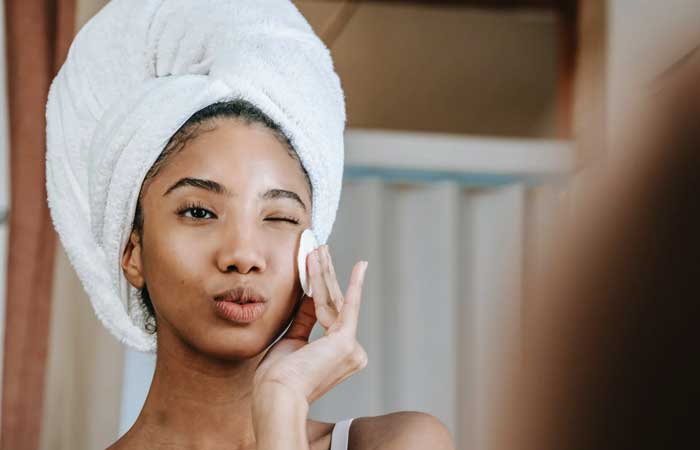How to Choose Right Moisturizer for Face?

You may feel that all moisturizers are the same. It’s simply a cream that you put on your face to keep it hydrated, correct? Not actually! There is a wide range of moisturizing lotions, and they all feel, smell, and give distinctive skin benefits. So how could you pick the best one for you?
There are face creams, body and facial lotions, and moisturizers or balms for dry, delicate, light, or brown complexion. Include anti-aging ingredients and sunscreens and the confusion just increases. You’ve bought pretty much every brand available. Everybody you know depends on one specific brand, and you’ve attempted the entirety of their ideas, trusting that one of them is the correct one, without any result.
Also Read: Korean Skin Care Routine for Flawless Skin
For what reason is this happening? For what reason do lotions appear to work for every other person yet not for you?
Everybody’s skin is different, and various kinds of creams fill various needs.

While picking up the correct moisturizer may appear to be befuddling, it’s in reality extremely basic if you follow a couple of rules. Utilize these straightforward procedures from top dermatologists to help pick the right lotion for giving your skin the solid sparkle you’re after.
How to Know Your Skin Type?
A quick way to know your skin type is to wash your face, pat dry your face, and afterward, analyze how your skin feels. Does it feel fine and supple? If it is so then you have combination or oily skin. Does it feel tight and awkward? At that point, you presumably have dry or dehydrated skin.
How to Choose the Right Moisturizer as Per Your Skin Type?
Oily or Acne-Prone Skin: Light moisturizers will in general turn out better for oily skin. Moisturizer with alpha-hydroxy acids helps in dissolving excessive oil, exfoliating pores, and eliminating dead skin cells. Therefore, the moisturizer can have anti-aging effects. Be that as it may, people with acne-prone skin ought to stay away from moisturizers with an excessive number of various kinds of acids, as they can additionally bother the condition. For a rundown of fitting moisturizers for oily or acne-prone skin, see a doctor at Associated Dermatologists.
Sensitive Skin: Look for a hypoallergenic, fragrance-free moisturizer that contains a negligible number of ingredients, and consider natural products if they fit your necessities.
Dry Skin: Dry skin needs a heavier moisturizer in density, like a balm, to fill in as a defensive barrier. Items that contain hyaluronic acid, glycerin, proteins, lanolin, or mineral oil help keep your skin hydrated and lock in moisture.
Normal Skin: Individuals with normal skin should search for creams, which are more hydrating than moisturizers yet not as thick as balms.
How a Moisturizer Works?
Moisturizer is the most important product for your skin. A moisturizer works by fixing moisture into the external layer of the skin and by pulling moisture from the internal layers of skin to the external layer.
What Are The Key Ingredients of a Moisturizer That Seal Moisture in Skin?
Key ingredients that seal in moisture are petrolatum, mineral oil, lanolin, and dimethicone. Glycerin, propylene glycol, proteins, urea, and nutrients help draw in water into the external layer of the skin. Some skin moisturizers also contain an alpha hydroxy acid (AHA), which exfoliates dead skin.
Tips to Choose Right Moisturizer
Check Key Ingredients: Search for common active ingredients, like lanolin, glycerin, or petrolatum. Glycerin is more uncertain than lanolin to cause an allergic reaction.
Moisturizer with Sun-Screen: Shielding your skin from harmful sun rays is probably everything you can manage to keep your skin looking youthful, so purchase a moisturizer with a sunscreen protection factor with SPF 30. You’ll need to do some research, yet most of the brands are offering face and body moisturizers with sunscreen.
Keep Separate Moisturizer for Face: The facial skin is more slender and more sensitive, so it’s a smart thought to utilize alternate moisture for your face than you do on your body. We suggest you get one that is marked “non-comedogenic” because it will not obstruct your pores. Obviously, pick one that is appropriate for your skin type. If you realize you have sensitive skin, it’s consistently a smart thought to search for a moisturizer labeled hypoallergenic. If you have oily skin, go with a light, oil-free moisturizer. Or if you have dry skin, get something denser. What’s more, for combination skin, go with a lighter moisturizer for your entire face. Remember that you may require a lighter moisturizer on sunny days, and cream or balm in the colder time of year.
Moisturizer with Antioxidants: Moisturizers with antioxidants like green tea, chamomile, pomegranate, or licorice root concentrate may help keep any skin type looking fresh and healthy. Antioxidants help kill free radicals – molecules that break down skin cells.
What Things to Avoid While Purchasing Face Moisturizer?
Colors and Perfumes: Most specialists say to stay away from pointless and conceivably disturbing ingredients, as added colors and perfumes. Antibacterial agents can likewise be pointlessly harsh, stripping skin of fundamental oils.
Moisturizer for Body: What’s right for your body isn’t in every case useful for your face. Stay away from facial moisturizers with well-known body item ingredients like lanolin, mineral oil, waxes, or shea butter. These can clog pores and cause break out on the face.
Lots of Harmful Acids: Stay away from alpha-hydroxy acids, glycolic acid, retinoic acid, and salicylic acid on the off chance that you have dry or sensitive skin. These ingredients may enter the skin too profoundly and trouble the skin. Avoid items with alcohol too.
Few Other Things to Keep in Mind
You need an alternate cream for the night. All in all, a morning cream should focus on protection from the climate, UV Rays, and an evening cream should focus on repairing skin.
The cream that was appropriate for you in your 20s is presumably not, at this point ideal for you in your 40s. Skin is an absolutely living breathing organism that develops and changes with time. As you adjust your closet from your 20s to your 40s, so should you adjust your healthy skin items. As a rule, as we age, our skin’s regular sebum creation will moderate, which will mean skin will get dryer.
Apply your lotion from the collarbone to the forehead, continually moving upwards, against gravity. Remember that your face doesn’t end at your jaw, yet rather mid-chest.
Whichever moisturizer you pick, it will work better if you apply it to damp skin. Consider a sponge that is dried out. In that way, if you put moisturizer on it, it will not go anyplace. However, if you absorb the sponge with water and coat it with moisturizer, the sponge will absorb it. Your skin works a similar way, cheerfully lapping it up.
Even if you are still struggling with your skin’s necessities, think about making a meeting with a dermatologist. Although that will include some cost, their master proposals could save you from purchasing many moisturizers that aren’t appropriate for your skin.





